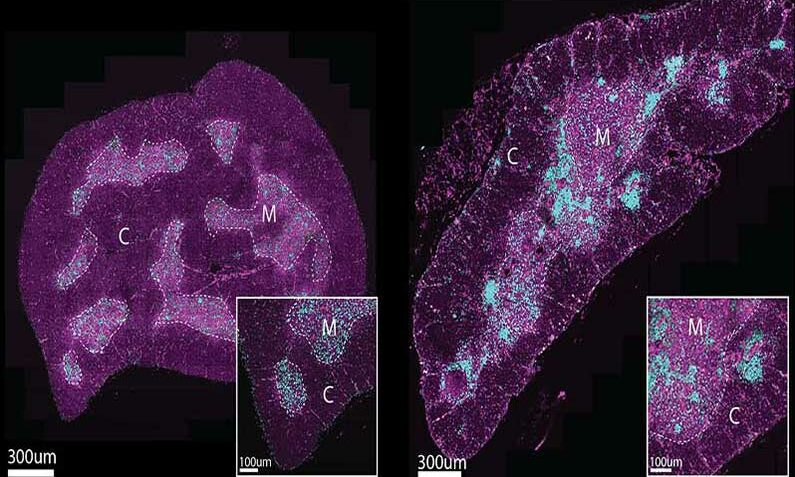A WEHI study holds the clue to solving one of the enduring mysteries, why one of our key immune organs shrinks and loses its function with age.
Good health depends on the good health of the thymus, an organ responsible for making special immune cells that fight infection and cancer.
In what could be considered a world-first, researchers have identified new cells that drive this ageing process in the thymus major findings may unlock the way for its functionality to be restored and our immunity not to wane with age.
Another way to refer to T cells is as T lymphocytes. They are a type of leukocytes that are crucial to our immune system. T cells play an important role in recognising and responding to pathogens, such as viruses and bacteria, and in eliminating infected or malignant cells. It is a small, mighty organ that sits behind the breastbone. The thymus is the only organ in the body that can manufacture T cells.
One of the curious features of the thymus, however, is that it serves as the very first organ in our body to become small with age. When this happens, the areas for T cell growth in the thymus start to get replaced with fatty tissue, this goes on further to reduce the production of T cells and thus a weakened immune system. While it’s able to regenerate after damage, scientists to date have not worked out how to unlock this ability and boost immunity in humans as we age.
The number of new T cells produced in the body significantly declines after puberty, irrespective of how fit you are. By age 65, the thymus has virtually retired,
This weakening of the thymus makes it harder for the body to deal with new infections, cancers and reg-ulate immunity as we age,
This is also why adults who have depleted immune systems, for example due to cancer treatment or stem cell transplants, take much longer than children to recover,
These adults need years to recover their T cells – or sometimes never do – putting them at higher risk of contracting potentially life-threatening infections for the rest of their lives,
Exploring ways to restore thymic function is critical to finding new therapies that can improve outcomes for these vulnerable patients and find a way to ensure a healthy level of T cells are produced throughout our lives,
Our discovery provides a new angle for thymic regeneration and immune restoration, could unravel a way to boost immune function in vulnerable patients in the future.
Professor Daniel Gray
The new study, conducted in close collaboration with groups at the Fred Hutch Cancer Center in Seattle and Memorial Sloan Kettering Cancer Centre in NYC, offers critical new insights that may help accomplish this.
Using state-of-the-art imaging facilities at the WEHI Centre for Dynamic Imaging, combined with animal models, the researchers identified two new cell types responsible for causing the thymus to lose its function.
These cells, which only existed in the faulty thymus of ageing mice and humans, created clusters around T cell growth areas that reduced the organ’s ability to make these important immune cells.
In a world-first, the researchers discovered these clusters also formed ‘scars’ in the thymus which prevented the organ from restoring itself after damage.
Dr Kelin Zhao who led the imaging efforts said the findings showed for the first time how this scarring process acts as a barrier to thymic regeneration and function.
While a large focus of research into thymic loss of function has focused on the shrinking process, we’ve proven that changes that occur inside the organ also impact its ability to function with age,
By capturing these cell clusters in the act and showing how they contribute to loss of thymic function, we’ve been able to do something no one else has ever done before, largely thanks to the incredible advanced imaging platforms we have at WEHI,
This knowledge enables us to investigate whether these cells can be therapeutically targeted in future, to help turn back the clock on the ageing thymus and boost T cell function in humans as we get older. This is the goal our team is working towards.
Source: WEHI – News
Journal Reference: Kousa, Anastasia I., et al. “Age-related Epithelial Defects Limit Thymic Function and Regeneration.” Nature Immunology, 2024, pp. 1-14, DOI: https://doi.org/10.1038/s41590-024-01915-9.
Last Modified:







